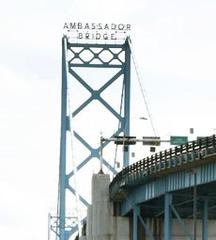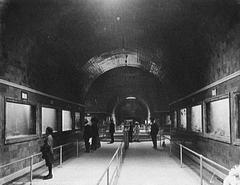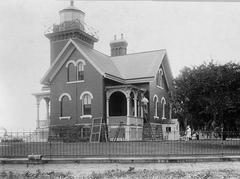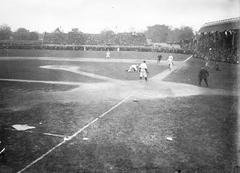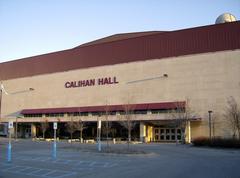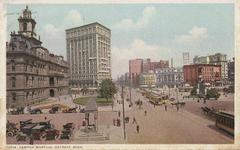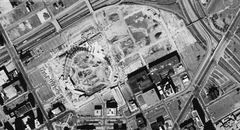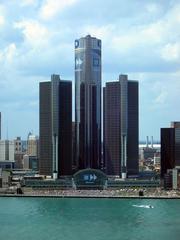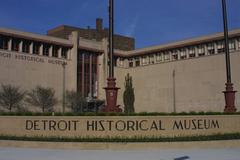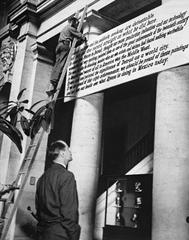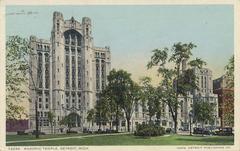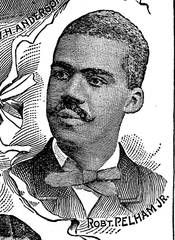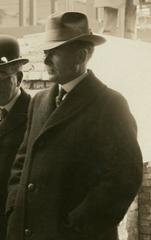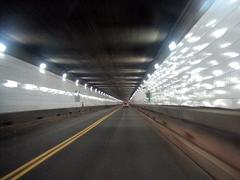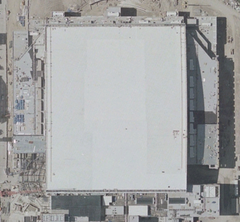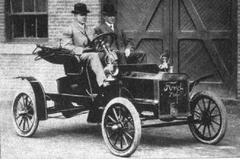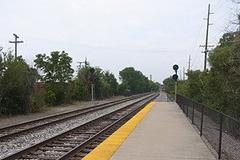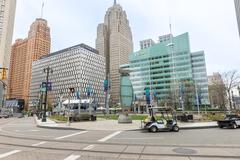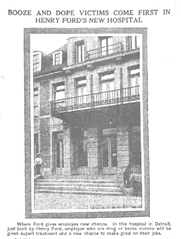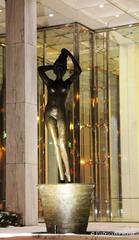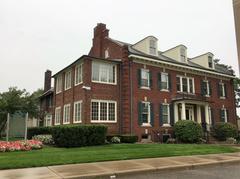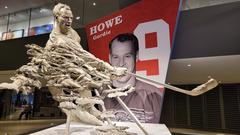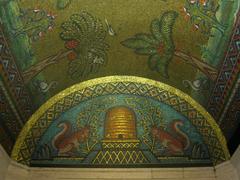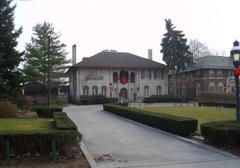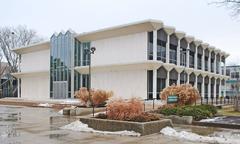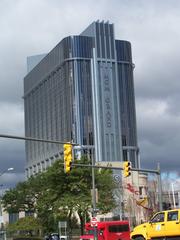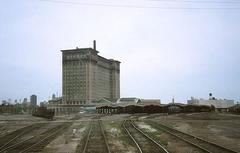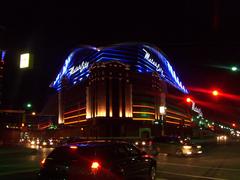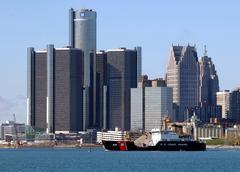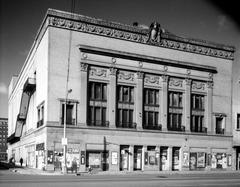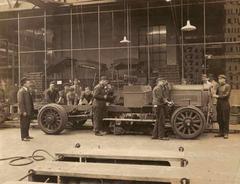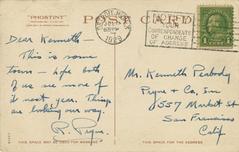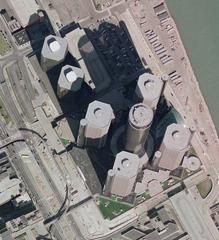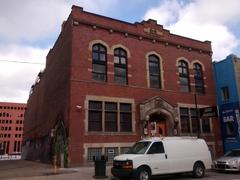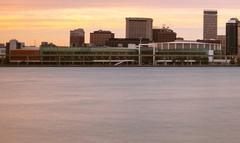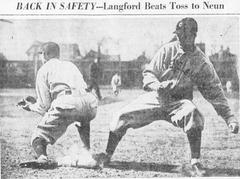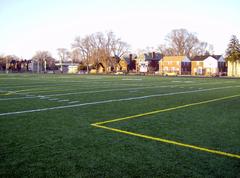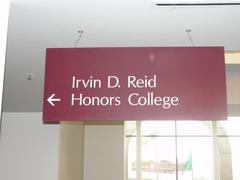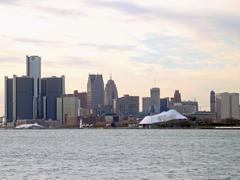
First Congregational Church Detroit: Visiting Hours, Tickets, and Historical Significance
Date: 04/07/2025
Introduction
Located in Midtown Detroit, the First Congregational Church is a landmark of faith, abolitionist history, and architectural splendor. Founded by abolitionists in 1844, the church stands as a living monument to Detroit’s role in the Underground Railroad and as a showcase of Romanesque and Byzantine Revival styles. Visitors today can explore not only its rich history but also its vibrant present, with immersive museum experiences, guided tours, and community events. This comprehensive guide provides everything you need to plan your visit, from historical context to practical details such as visiting hours and ticket information.
For the latest updates and additional resources, visit the First Congregational Church Detroit official website, the Fund for Sacred Places, and Visit Detroit.
Table of Contents
- Historical Background
- Visiting Information
- Cultural and Social Impact
- Underground Railroad Living Museum: Experience and Insights
- Frequently Asked Questions (FAQ)
- Conclusion and Resources
Historical Background
Founding and Abolitionist Roots
Established on December 25, 1844, the First Congregational Church of Detroit emerged during a period of rapid urban growth and social change in the city (friendsoffirst.com; kids.kiddle.co). The congregation quickly distinguished itself through a deep commitment to social justice, most notably as a participant in the Underground Railroad. The church’s earliest buildings, located near the Detroit River, served as sanctuaries for enslaved African Americans seeking freedom across the border to Canada (michigan.org; detroit1701.org).
Architectural Significance
Outgrowing its original riverfront site, the congregation relocated to Woodward Avenue and East Forest Avenue in 1886. The present church, completed in 1891, was designed by Boston architect John Lyman Faxon with inspiration from Venetian and Ravenna churches. Its red sandstone exterior, five-bay loggia, and 120-foot bell tower crowned by the copper statue of Archangel Uriel set it apart from other churches of its era (historicdetroit.org; wikipedia.org). The sanctuary’s interior features carved woodwork, rose windows, and murals by Boston artist Lyle Durgin. In 1921, Albert Kahn added the Angel’s Wing, further expanding the church’s community spaces (kids.kiddle.co; michigan.org).
Community Role and Underground Railroad Legacy
The church’s basement was a crucial safe haven on the Underground Railroad. Its congregation—comprising both Black and white abolitionists—helped freedom seekers on their final journey to Canada (friendsoffirst.com; thenarrativematters.com). Today, this legacy is honored through the Underground Railroad Living Museum and the “Flight to Freedom” tour, which offer immersive, educational experiences to visitors of all ages (kids.kiddle.co). The church is also an active community hub, hosting lectures, cultural events, and educational programs.
Preservation and Recognition
In recognition of its historical and architectural importance, the First Congregational Church was named a Michigan State Historic Site in 1974 and added to the National Register of Historic Places in 1979 (wikipedia.org; kids.kiddle.co). Restoration efforts, including significant work on the bell tower, preserve the church’s legacy for future generations (Fund for Sacred Places).
Visiting Information
Hours and Admission
- Church and Museum: Open Tuesday–Saturday, typically from 10:00 AM to 4:00 or 5:00 PM. Hours may vary due to special events or holidays; always confirm via the official website.
- Sunday: The sanctuary is accessible during worship services.
Tickets and Tours
-
Underground Railroad Living Museum:
- Admission: $10–$15 for adults, $5–$12 for youth and seniors, free for children under 6 (fees may vary by source and date).
- Tickets: Purchase online at the official website, by phone (313-831-4080), or at the visitor center. Advance booking is recommended.
- Guided “Flight to Freedom” tours: Highly immersive, approximately 90 minutes, offered multiple times daily with advance reservations required.
-
General Church Entry: Entry to the sanctuary during regular hours is typically free; donations are encouraged.
Accessibility
- The church is wheelchair accessible, with ramps, elevators, and accessible restrooms.
- Visitors with additional needs should contact the church in advance to arrange accommodations.
Directions and Nearby Attractions
- Address: 33 East Forest Avenue, Detroit, MI.
- Parking: On-site parking available; public parking nearby.
- Transit: Accessible via Detroit’s public transportation.
- Nearby Sites: Detroit Institute of Arts, Charles H. Wright Museum of African American History, Detroit Historical Museum.
Visitor Tips and Etiquette
- Photography: Permitted in most areas; be respectful during services and events. Flash and tripods may be restricted.
- Amenities: Restrooms, gift shop, and café available.
- Group Visits: School and group tours are welcomed; contact in advance for arrangements.
Cultural and Social Impact
The First Congregational Church is more than a historical site—it is a living center for community engagement, social justice, and education. Its programming draws thousands of visitors annually, including students and community groups. The church’s ongoing partnerships with local organizations and schools amplify its impact as a hub for African American heritage and Detroit’s cultural revitalization.
By telling the stories of freedom seekers and abolitionists, the church fosters intergenerational dialogue, empathy, and a commitment to equity. Special events often feature local leaders and activists, further connecting history with contemporary social issues.
Underground Railroad Living Museum: Experience and Insights
Beneath the sanctuary, the Underground Railroad Living Museum offers a uniquely immersive experience into the history of the Underground Railroad (Midbrow; Visit Detroit). The “Flight to Freedom” tour, led by costumed interpreters, guides visitors through authentic reenactments in dimly lit corridors and safe house reconstructions, helping participants understand the peril, courage, and hope of those seeking freedom.
- Tour Duration: 90 minutes.
- Suitability: Appropriate for most ages; adult guidance recommended for children due to sensitive themes.
- Booking: Required in advance; call 313-831-4080 or visit the Friends of First Congregational Church website.
- Accessibility: Accommodates visitors with mobility challenges—contact in advance for details.
The tour concludes with a group discussion, providing space for reflection and questions.
Frequently Asked Questions (FAQ)
Q: What are the visiting hours for the church and museum?
A: Tuesday through Saturday, 10:00 AM to 4:00 or 5:00 PM. Sunday services provide additional access to the sanctuary.
Q: How much are tickets for the Underground Railroad Living Museum?
A: $10–$15 for adults, $5–$12 for youth and seniors. Children under 6 are free. Prices may vary.
Q: Are guided tours available?
A: Yes, immersive “Flight to Freedom” tours run multiple times daily with advance booking.
Q: Is the site accessible for visitors with disabilities?
A: Yes, with ramps, elevators, and accessible restrooms.
Q: Can I take photographs?
A: Yes, in most areas. Be respectful during services; flash/tripods may be restricted.
Q: Are there group rates or special programs for schools?
A: Yes, contact the church for group rates and educational programming.
Conclusion and Resources
The First Congregational Church of Detroit offers visitors a powerful journey through Detroit’s abolitionist past and vibrant present. With its remarkable architecture, immersive museum experiences, and ongoing commitment to community engagement, it remains a cornerstone of Detroit historical sites and African American heritage tourism. Plan your visit to explore its hallowed halls, join a guided tour, and witness firsthand the enduring legacy of justice, resilience, and faith.
For more information, updates, and to book your visit:
- Friends of First Congregational Church
- First Congregational Church Detroit Official Site
- Fund for Sacred Places
- Midbrow - Underground Railroad Revisited
- Visit Detroit - Underground Railroad Sites
Stay connected via the church’s social media channels and consider downloading the Audiala app for travel tips and virtual experiences.


